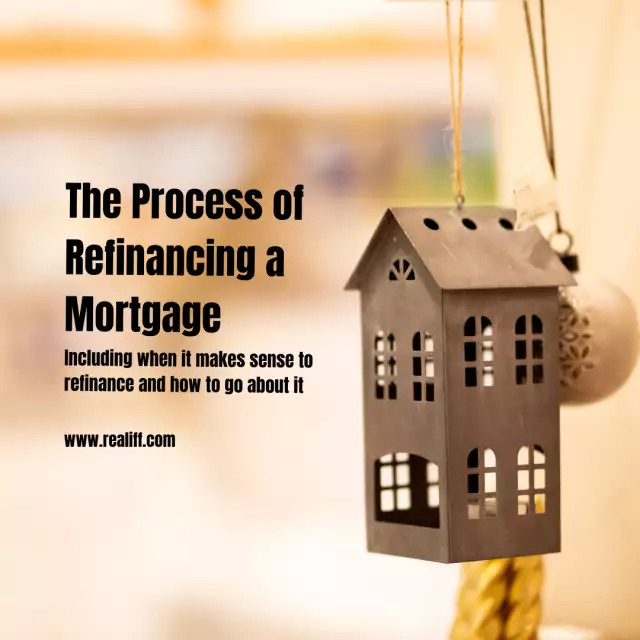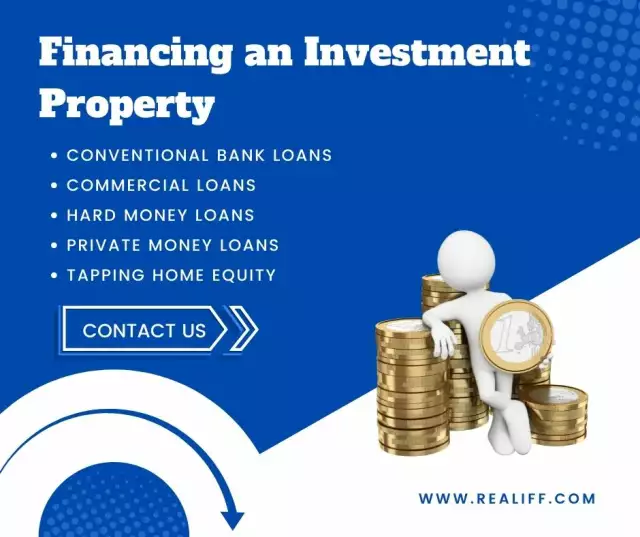Mastering Investment Property Refinancing: A Comprehensive Guide
Mastering Investment Property Refinancing: A Comprehensive Guide
In the competitive realm of real estate investment, mastering the art of refinancing can significantly enhance your financial flexibility and portfolio growth. Refinancing investment properties offers a plethora of benefits, including reduced monthly payments and the potential to free up cash for new investments. This detailed guide will walk you through the essential steps and strategies for investment property refinance, ensuring you make informed decisions to maximize your investment returns.
Assessing Financial Health Before Refinancing
Before you consider refinancing your investment property, it's crucial to evaluate your financial standing. Here are the key areas to focus on:
Credit Score
Since investment properties carry higher risks, lenders typically require a stronger credit score compared to primary residences. A robust credit score not only facilitates approval but also ensures more favorable interest rates. If your credit score is less than ideal, it's advisable to take measures to enhance it, such as paying down existing debts and correcting any errors on your credit report. Improving your credit score can significantly impact the terms of your refinancing.
Income and Debt-to-Income Ratio
Lenders will assess your income and debt-to-income ratio (DTI) to ensure you can manage the new loan payments. A lower DTI ratio indicates better financial health and enhances your chances of securing favorable refinancing terms.
Property Cash Flow
For rental properties, lenders may also consider the property's cash flow. This includes evaluating rental income versus expenses to ensure the property generates sufficient income to cover the loan payments. Be prepared to provide detailed documentation of rental income and expenses.

Gathering Necessary Documentation
Successful refinancing requires meticulous preparation of key documents. These include:
- Income Statements: Recent pay stubs, W-2 forms, or other proof of income.
- Tax Returns: Typically, the past two years of tax returns are required.
- Bank Statements: Statements from the last few months to verify financial stability and liquidity.
- Property Documents: Proof of property ownership, current mortgage statements, and any documents related to rental income if applicable.
These documents provide lenders with a clear picture of your financial health and are instrumental in the assessment of your refinancing application.
Selecting the Appropriate Lender
Choosing the right lender is pivotal when refinancing investment properties. Not all lenders offer refinancing for these types of properties, and terms can vary significantly. Here’s how to select the best lender for your needs:
Compare Interest Rates and Terms
Interest rates and loan terms can vary widely among lenders. Shop around and compare offers from multiple lenders to find the best rates and terms that align with your financial goals. Consider both fixed and adjustable-rate options based on your risk tolerance and financial strategy.
Evaluate Lender Experience
Select lenders who have experience dealing with investment property refinances. They will be more familiar with the specific challenges and requirements of refinancing rental properties.
Review Fees and Closing Costs
Be sure to understand all the fees and closing costs associated with the refinance. These can include appraisal fees, origination fees, and title search fees. Ask for a detailed breakdown from each lender to compare the total costs of refinancing.

Conducting Property Appraisal and Title Search
Once you've chosen a lender, the next steps involve a property appraisal and title search. These are crucial for ensuring a smooth refinancing process:
Property Appraisal
A professional appraisal determines the current market value of the property. This appraisal is essential as it influences the loan amount you can secure. The appraisal should reflect the property's condition, market trends, and any improvements made since the last appraisal.
Title Search
A title search verifies that there are no legal issues or liens on the property. This step ensures that the property's title is clear and that there are no ownership disputes or unpaid property taxes that could complicate the refinancing process.

Completing the Refinancing Process
The culmination of the refinancing process is the loan closing, where you'll sign various legal documents and handle the associated closing costs. Here’s what to expect:
Review Loan Documents
Carefully review all loan documents before signing. Ensure that the loan terms match what was agreed upon and that you understand the repayment schedule, interest rates, and any prepayment penalties.
Pay Closing Costs
Be prepared to pay closing costs, which may include fees for the appraisal, title search, and other administrative expenses. Some lenders may allow these costs to be rolled into the loan amount, but this will increase your total loan balance.
Confirm New Payment Schedule
After closing, confirm the details of your new payment schedule. Understand when your first payment is due and the amount. Set up automatic payments if possible to ensure timely payments and avoid late fees.
Monitoring Post-Refinance Outcomes
After refinancing, it's imperative to keep a close eye on your financial adjustments. Here are key areas to monitor:
Monthly Payments
Ensure that your new monthly payments align with your expectations and budget. The goal of refinancing is often to reduce monthly payments, so track this carefully to confirm the benefits.
Cash Flow
For rental properties, monitor the cash flow to ensure the property remains profitable after refinancing. Compare rental income with expenses and the new loan payments to assess the overall financial health of the property.
Long-Term Financial Impact
Evaluate how the refinance impacts your long-term financial goals. Consider the overall savings from reduced interest rates versus the costs of refinancing and the extended loan term.
Frequently Asked Questions
Can I refinance a property that is currently rented?
Yes, but you might need to provide additional documentation, such as proof of rental income and lease agreements. Lenders want to ensure that the rental income is stable and sufficient to cover the loan payments.
Is it feasible to refinance with a low credit score?
While challenging, some lenders do accommodate lower credit scores, albeit with less favorable terms. It may be worth exploring specialized lenders or improving your credit score before refinancing.
What duration does refinancing an investment property take?
The process typically takes longer than refinancing a primary residence, often taking 30 to 45 days, due to the additional complexities involved with rental income verification and property evaluations.
What costs are involved in refinancing?
Typical costs include appraisal fees, title search fees, origination fees, and various closing costs. These should be clarified by your lender beforehand to understand the total expense of refinancing.
The Most Comprehensive Tips for All Aspects of Investment Property Refinance
To navigate the refinancing landscape effectively, consider these comprehensive tips:
Understand the Benefits
Refinancing can lower your payments, provide cash-out opportunities for further investments, and improve loan terms. Assess these benefits in the context of your financial goals.
Compare Lending Offers
Not all offers are created equal. Evaluate multiple lenders to find the best terms that suit your financial strategy. Look beyond interest rates to include fees, closing costs, and loan terms.
Consider the Costs
Be aware of all associated costs, including closing costs, appraisal fees, and any potential prepayment penalties on your existing loan. Ensure that refinancing provides a net benefit after accounting for these expenses.
Plan for the Long Term
Refinancing can affect your long-term financial landscape. Consider how these changes align with your investment goals and overall financial strategy. Ensure that the benefits of refinancing align with your long-term plans for property ownership and income generation.
Conclusion
Refinancing an investment property can be a robust strategy to enhance your portfolio and reduce financial burdens. With the right preparation and understanding of the process, you can leverage refinancing to achieve substantial financial benefits.
Realiff.com, with its cutting-edge technology and extensive property listings, serves as an invaluable resource for buyers and sellers in the real estate market. Whether you're looking to capitalize on market trends or find competitively priced homes, Realiff.com equips you with the tools and insights needed to navigate the real estate landscape effectively.
This guide aims to provide you with a thorough understanding of the refinancing process, helping you make well-informed decisions that align with your investment strategies and financial objectives.







